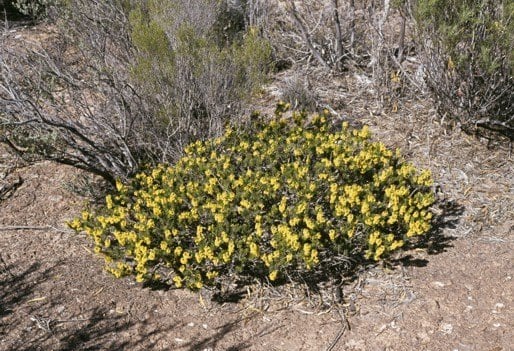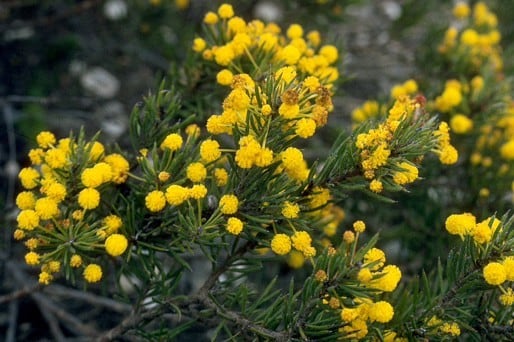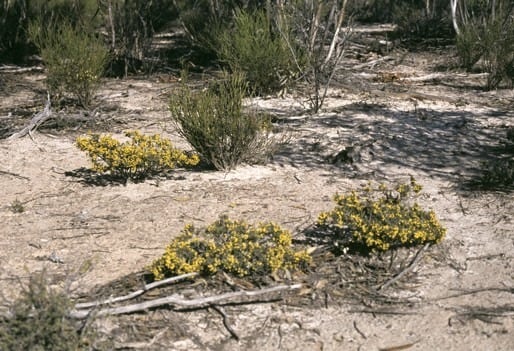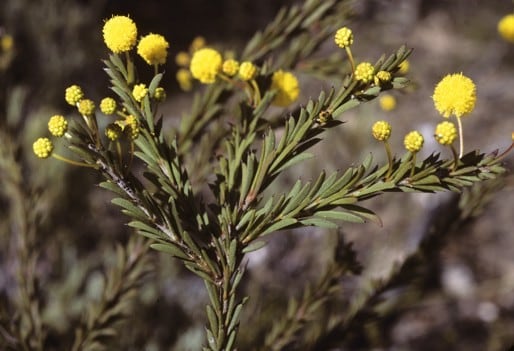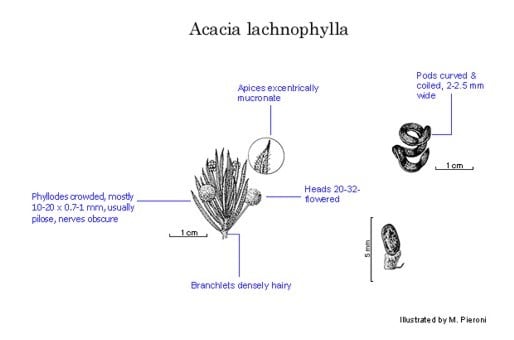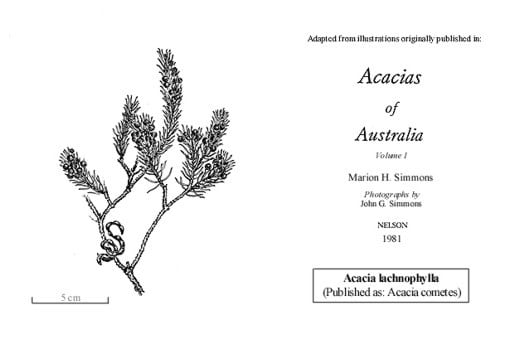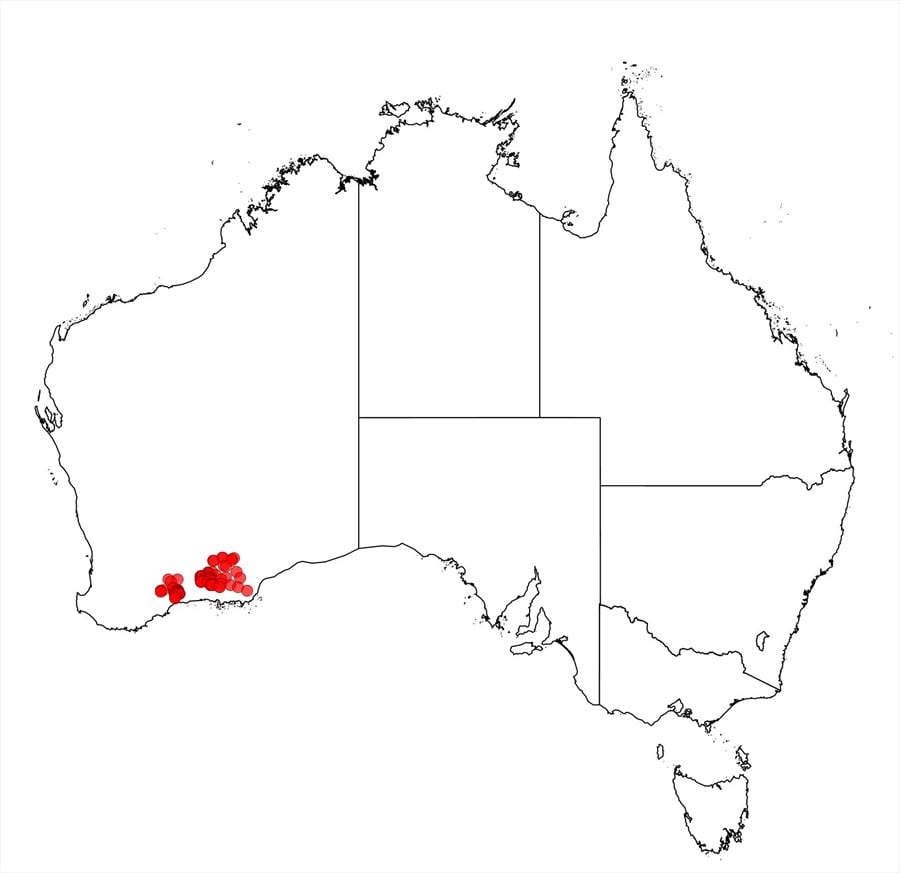Acacia lachnophylla F.Muell.
WATTLE
Acacias of Australia
Family
Fabaceae
Distribution
Occurs principally in an area bounded by Peak Charles, Norseman, Clyde Hill and Grass Patch, south-western W.A.; also in Ravensthorpe area, c. 150 km west of Grass Patch.
Description
Prostrate, domed or spreading shrub to 0.8 m high. Branchlets densely pilose to pubescent. Stipules caducous. Phyllodes crowded, scattered or irregularly verticillate, on raised stem-projections, patent to erect, linear, straight to shallowly incurved, subterete to flat, (0.7–) 1–2 cm long, 0.7–1 (-1.5) mm wide, narrowed at base, acute, obliquely mucronate, usually pilose, 4‑nerved in all, 1-nerved per face when flat with midrib not prominent; gland inconspicuous, commonly 4–12 mm above pulvinus. Inflorescences rudimentary racemes, normally 2-headed with axes c. 0.2 mm long; peduncles 7–17 (–30) mm long, glabrous, recurved from base in fruit; heads globular, 4–4.5 mm diam., 20–32-flowered, golden. Flowers 5-merous; sepals free. Pods linear, circinnate to coiled, biconvex, 2–2.5 mm wide, crustaceous-coriaceous, black, glabrous or sparsely puberulous. Seeds longitudinal, oblong to broadly elliptic, 2–2.5 mm long, mottled; aril thick.
Habitat
Grows in calcareous or clay loam, sometimes with sand or gravel, in low mallee woodland, low heath or open dwarf scrub on flatlands.
Specimens
W.A.: 5.5 km NE of Clyde Hill, M.A.Burgman 1791 & S.McNee (PERTH); 7.5 km W of Grass Patch on Grass Patch Rd, B.R.Maslin 5441 (K, MEL, MEXO, PERTH); 19.3 km NW of Ravensthorpe, K.R.Newbey 3272 (CANB, PERTH).
Notes
Phyllodes somewhat variable: they are usually loosely pilose to pubescent (at least when young) with a fine midrib on each face, but sometimes completely glabrous and (especially Norseman–Grass Patch area) with midribs submerged so as to appear absent; superficially resembles the possibly related A. profusa. Specimens from near Mt Ridley with broader than normal phyllodes (c. 1.5 mm wide) are similar to A. excentrica which is distinguished by its broader, differently shaped phyllodes with the midrib excentric, the gland to 1 mm above pulvinus and the adaxial margin with 2 fine nerves that coalesce near or above the middle of the phyllodes (adaxial margin 1-nerved in A. lachnophylla).
Superficially similar to A. pusilla but perhaps most closely related to A. poliochroa.
FOA Reference
Data derived from Flora of Australia Volumes 11A (2001), 11B (2001) and 12 (1998), products of ABRS, ©Commonwealth of Australia
Author
Minor edits by J.Rogers
B.R.Maslin
This identification key and fact sheets are available as a mobile application:
URL: https://apps.lucidcentral.org/wattle/
© Copyright 2018. All rights reserved.
